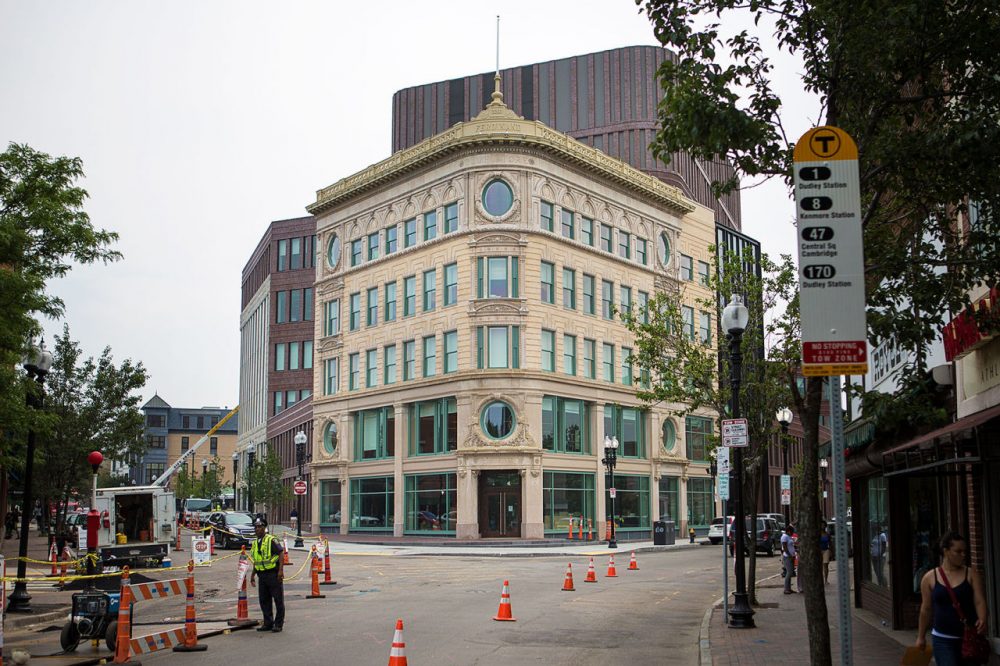Advertisement
Education commissioner asks mayor to 'step up' on improvement plan for Boston Public Schools

Massachusetts' top education official urged Boston Mayor Michelle Wu to commit to an improvement plan for Boston Public Schools as he stopped short of proposing a state takeover of the district during Tuesday’s Board of Elementary and Secondary Education Meeting.
Education Commissioner Jeff Riley’s comments came a day after a scathing report by the state detailing systemic issues with the Boston Public Schools system, including shoddy transportation, poor facilities and inadequate support services for special education students since the last review in late 2019.
After hearing roughly two hours of public comment from local lawmakers, parents, advocates, students and teachers, Riley said, for now, he was not going to recommend so-called receivership or plan a timeframe for such a course of action.
"Today is only about the report," Riley said. "It's important that the public understands the serious issues that are facing this district."
Riley flagged six areas of particular concern in Boston schools: student safety, transportation, special education, English learners, data transparency and facilities. He said he’s giving city officials about a week to come back with a “statement of assurances” to address some of the most pressing problems.
The commissioner said the state is open to working with Wu to begin charting an improvement plan. He acknowledged that Wu, who just took office in January, “inherited” the situation in the schools.
"We want to be respectful of the mayor and give her a little time and space to see if she is willing to provide us with the assurances that things are going to improve for our children," Riley said. "We need the mayor to step up at this time."
The commissioner said many of the issues need to be addressed before a new superintendent is hired this summer. The current superintendent, Brenda Cassellius, will step down in June.
Riley called Monday's blistering report “incredibly disheartening” as he emphasized the shortcomings in the school system, which serves roughly 46,000 kids. But he signaled some optimism over the Boston school bus drivers' union's new tentative contract with a private contractor.
Advertisement
Some education board members urged Riley to take more decisive action in the direction of state receivership.
“If God was superintendent [at BPS], God would need receivership to be effective here,” said BESE member Matt Hills. “When is enough enough? When are you prepared to act?”
Hills urged the commissioner to put the receivership question to a vote before the board if he doesn’t get the assurances he wants from city officials.
Other board members took a more ambiguous stance on the need for state control of Boston’s schools.
“We have an obligation as adults to do what’s in the best interests of children and work across our silos to do what’s best for students,” said Secretary of Education Jim Peyser. “We need to keep the lines of communication open and we need to keep all options on the table.”
He called the report a “critical first step” and thanked Wu for engaging in conversations with the state.
Tuesday’s testimony from the public featured a mix of opinions on the best path forward. The dominant view by those who spoke was to keep control of BPS within the local community.
“Please understand that by moving BPS as a district into state receivership, not only are you neglecting what teachers, families and students want but you are also upholding the racist systems that have been proven to affect the students you claim you want to deliver for,” said high school student Josiehanna Colon.
Former BESE member Margaret McKenna reminded education officials about the disruptions posed by the COVID-19 pandemic on student learning over the last couple of years. She said it’s not fair to say BPS didn’t make enough progress on its goals following the board's 2019 district review.
“All of those days were plagued by COVID,” she said. “The fact that BPS could produce anything during this period of time, I think is amazing.”
Some community members said state takeover was necessary to address long standing issues in the district.
“Receivership creates the conditions for change that benefits students,” said Mary Tamer, with Democrats for Education Reform, who is also a product of Boston Public Schools and a parent of a former student. “And I have to ask, how much longer should tens of thousands of Boston children wait before we do something?”
In a written statement, the Boston School Committee, the governing body for the school district, said it looks forward to working with state education officials.
“Nothing is more important to this School Committee than creating learning environments where every BPS student has the opportunity to get a great education that prepares them for success in work and life,” said School Committee chair Jeri Robinson.
The education advocacy group, Special Education Parent Advisory Council (SPED PAC), said it hopes to see more details soon about what assurances the state board of education expects from BPS and what options are on the table right now.
The group’s treasurer, Charlie Kim, said the lack of transparency is frustrating.
“It seems to be that this process is more opaque than anything that Boston Public Schools has had in any kind of engagement like this,” he told WBUR.
Kim said he’s optimistic that positive change is possible for students requiring special education services or English language instruction due to the city’s budget surplus this year plus growing parent engagement.
“We are seeing a larger group of parent leaders that are not just willing to talk about it, they’re getting in there,” he said. “They’re getting on task forces, we’re seeing parents becoming paraprofessionals in classrooms.”
